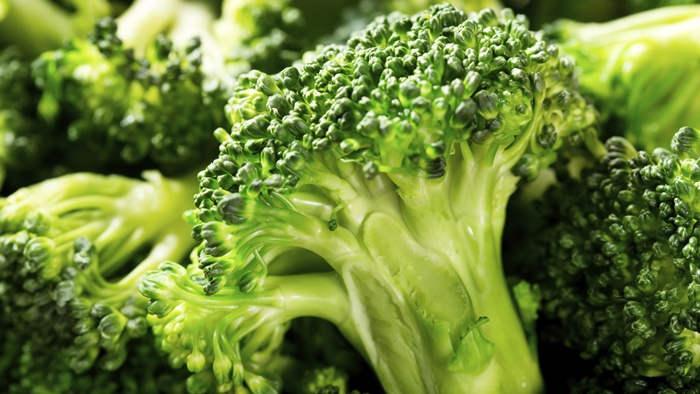
Broccoli is a humble vegetable. Its green and tree-like appearance has given it such a strong association with good health ever since you were a child. Maybe you didn’t grow to love it until you were an adult, or maybe you always did. It always seemed to be a staple at mealtime.
And you likely know broccoli is good for you, but it’s not just good for you. It is a versatile superstar veggie that is a real cornerstone to your health. We’ve rounded up some great news on how broccoli can impact your health (that you might not have considered). Your next trip to the supermarket might look at lot more green and tree-like…
Broccoli to Reduce Cancer Risk
This cruciferous veggie belongs to the cabbage family alongside cauliflower, bok choy and kale. The American Cancer Society (ACS) has flagged it as a go-to vegetable; broccoli is high in vitamins, minerals, fiber and calcium. But what gives it the potential to lower cancer risk is a specific group of compounds called isothiocyanates. The ACS says isothiocyanates could have strong antioxidant effects and work to boost enzymes in the body. These compounds can alter the levels of estrogen, which could lower the risk of all kinds of cancer, especially breast cancer.
A study in the journal Gynecologic Oncology included 57 women and found by consuming 300 mg of the isothiocyanates in broccoli per day, women could reduce the risk of estrogen-promoted cancers. The 300 mg daily dose of isothiocyanates is also recommended by the U.S. Food and Drug Administration (FDA) to reduce the risk of cancer.
However, although broccoli is the top source for isothiocyanates and a go-to food for cancer prevention, it’s impossible to eat enough of it to get the 300 mg daily—so supplement your diet with other sources of similar “bioactive” foods, including cilantro, flax and poppy seed, ginseng, watercress and wheatgrass, to name a few.
More studies are needed to find a way to extract the compound for human use, researchers say, and pinpoint the exact compound in broccoli that fights off cancer because broccoli has a complex nutritional composition.
Drink Your Broccoli (to fight off the effects of pollution)
Broccoli came to the forefront in big way recently for a reason unrelated to cancer or any diagnosable illness. A study by Johns Hopkins University that appeared in the journal Cancer Prevention Research showed drinking broccoli sprouts daily produced a chemical with detoxifying benefits that could reduce the health risks of air pollution.
Broccoli sprouts are truly amazing and often overlooked. In fact, a single ounce of broccoli sprouts has as much antioxidant power as three pounds of fully grown broccoli. It is important to note here that the effects against pollution were seen using a hot drinkable form from the sprouts of the broccoli, not the entire broccoli. You don’t need to guzzle down a ton of this liquid to see the benefits, either.
The study found that boiling the sprouts and consuming small quantities of the tea a couple times a day provides enough protection against toxic pollutants. Start with the sprouts of about 150 g of broccoli to see these benefits. While the sprouts themselves are difficult to find in stores, the seeds are widely available and they’re easy to grow.
Eat Broccoli to Shorten a Cold
What broccoli has that many other vegetables don’t is an ultra-high amount of vitamin C in just a small serving. In fact, for just 100 g of broccoli, or about two-thirds of a cup, you are getting a powerful 150% of your daily recommended intake of vitamin C.
According to the National Institutes of Health (NIH), large doses of vitamin C can shorten the length of the common cold considerably. And the aches, pains and inconvenience of the common cold are well documented with most people either wanting a quick fix or a good preventative.
Maybe when your mother chided you to eat your broccoli, she wasn’t so far off after all. Between lowering cancer risk, fending off air pollution and keeping the common cold at bay, there is any number of reasons to add broccoli to your next meal. So if the green stuff hasn’t seen the spotlight on your dinner table, maybe it’s time it did.
Sources:
Watson, R., “Bioactive Foods and Extracts: Cancer Treatment and Prevention,” CRC Press, 2010; retrieved from: http://www.crcpress.com/product/isbn/9781439816196.












